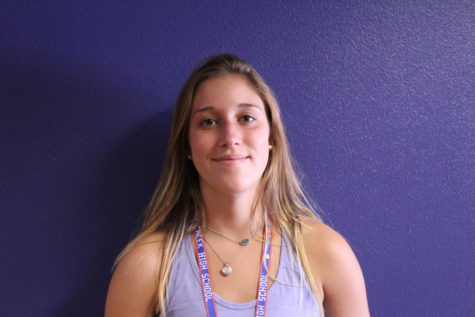Activism with a click
February 29, 2020
Activists are highly praised for their confidence to stand up for their opinions and share them passionately. But with new websites and social media platforms, many people have questioned whether online activism is effective, leading to the coining of the term slacktivism.
Slacktivism is known as supporting a cause with social media or online petitions and doing the least amount of effort and commitment. Change.org is a website that allows anyone to create petitions online. All you need is an email. Over the past few months, there has been a surge of online petitions related to the Cherry Creek School District on this website.
Two Cherokee Trail High School freshmen, Elly Salaz and Skylar Gaines created an online petition to get all of the Cherry Creek School District to have no school the day after Halloween. This petition has reached almost 100,000 signatures, far exceeding their expectations.
“I really wanted to see how many people were wanting November first off,” Gaines said. “But I didn’t expect us to have so many signatures in just one week.”
Creek senior Zach Gauthier created another online petition requesting a change in the administration at the district level. Gauthier made this petition after the district did not call a snow day during a heavy storm. He felt that students’ safety was put at risk because of severe weather conditions.
“I want the administration to know that some kids aren’t happy with what’s going on. I think the administration needs to listen to us a little more,” Guathier said.
There have been several other online petitions made asking for changes. An unknown user created a petition to get rid of the ID requirement at Creek. Another Creek student that has since graduated created a petition to arm teachers.
Both Gauthier and the CT freshmen said they hadn’t followed up on their petitions by scheduling any meetings with administrators at the school or district level. Gautheir said that he has mentioned it to teachers, but no steps forward were made. Gaines expressed interest in speaking to an administrator but admitted that she has not mentioned it to anyone other than a few friends so far.
This brings up the question: are these petitions effective or are they a form of slacktivism?
At the district level, the petitions have not done anything. At the school level, the petitions have sparked an interest among students, but there has been no further discussion among most of the faculty. Principal Ryan Silva was surprised to know that these petitions were going around school when he wasn’t aware of them at all.
“If there’s energy around a topic, then you need to let people know. Doing it through social media or even hardcopy is great, but just getting signatures doesn’t actually do anything. You actually have to talk,” Silva said.
If students are pushing for a change, it is something that all administrators automatically have on their radar, however there is no ability for them to be aware of the issue if no one talks about it. Simple communication is key. Every student has the ability to meet with an administrator to discuss issues if they chose to do so.
The possibility of students approaching Silva or other administrators with a change they would like to see is encouraged. Silva has taken different student-initiated ideas that have helped make a difference in the Creek community for the past school year.
“Last year, in the spring, I met with students to talk about things that impact mental health,” Silva said. “The different themes that came up were technology, the lack of relationships with students and teachers, and also homework. So advisory was born out of that input we got from students.”
From this, students, staff and faculty also formed a technology committee that has helped manage the best use of technology at Creek. The key to these changes being made was communication. When Creek was in a mental health crisis during second semester last year, several students pushed for differences to be made; this was the outcome.
“Once we’re able to have a conversation, then you can start to see action process happen,” Silva said. “It doesn’t mean that just because there’s a petition, and somebody comes up to you that you just do it. It has to lead to people being involved.”
These petitions have shown student interest, evidently by how many signatures they have gotten. The lack of information that administrators have concerning these topics, however, shows that they have been ineffective thus far.
“What I think would be more important is that there’s a dialogue so that people have a better understanding of why,” Silva said. “Then you have all different types of stakeholders be part of the conversation to craft a plan that works for everybody.”



















